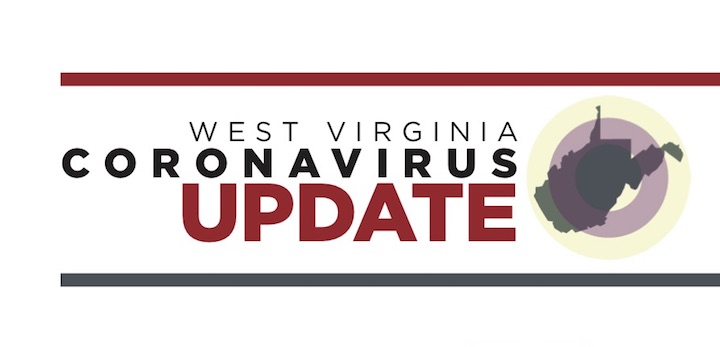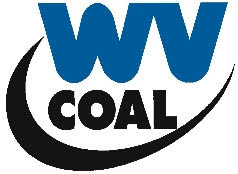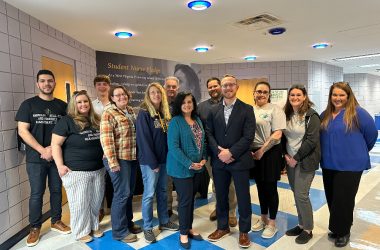By Lexi Browning
West Virginia Press Association
CHARLESTON, W.Va. — Over the last nine months, the ever-present threat of catching — or spreading — coronavirus has reshaped many aspects of the job for West Virginia’s essential workers.
Since March, essential workers have navigated through a series of new challenges including wearing extra layers of personal protective equipment and adhering to Centers for Disease Control and Prevention guidelines for reducing the spread of COVID-19.
Less visible impacts of the virus, unfortunately, might represent the greatest challenge for many essential workers.
With the pandemic came unprecedented levels of stress and new, often traumatic, experiences for those working on the front lines.

Excessive, unmanaged stress can pose serious risks in both the short- and long-term, said Jennifer Mills Price, licensed psychologist and assistant professor in Marshall Health’s Department of Psychiatry and Behavioral Medicine.
“In small doses, stress can motivate us and prepare us for action,” Price said. “Our minds and bodies require a period of recovery to return to their normal states. Prolonged stress increases our experience of negative emotions, impairs our thinking, and increases our risk for chronic illness.”
This year, healthcare workers across the globe have taken to social media after working with COVID-19 patients to illustrate the situation’s severity. Some share selfies with N95 respirator bruises after their shifts. Others share the firsthand trauma of consoling a dying patient. There is also the constant pleading for others to wear masks to prevent contracting and spreading the deadly disease.
In addition to burnout and exhaustion, Price said the frontline workers who care for COVID-19 patients are also at risk for “secondary” or “vicarious” trauma, which she described as an “emotional disturbance created by repeated exposure to others’ heightened emotion and distress.”
“Frontline workers may themselves experience trauma, particularly if they lose a patient to the disease, and feel helpless, afraid, or guilty,” Price said. “This can manifest in reliving the traumatic event in memories or dreams, changes in thinking and mood, increased anxiety and agitation, and a desire to avoid reminders of the event.”
Clarksburg Fire Department Captain Cindy Murphy understands the stress issues and said COVID has been all-consuming for first responders.
Murphy, who has witnessed her fair share of public health crises in her 30-year career, including tuberculosis, HIV, SARS, Zika and Ebola, said there has been nothing like the coronavirus pandemic for first responders.
Calls that were previously quick to manage now require meticulous preparation to avoid exposure to the virus. Pre-pandemic, most firefighters and EMTs used gloves on the job unless a contagious or transmittable condition was involved, Murphy said. It wasn’t uncommon to quickly go inside a house to help someone who had fallen or needed assistance. Now, regardless of the type of call, N95 masks or surgical masks are required.
“Now, you’re walking into people’s houses and you have no idea [if they’re COVID-19 positive],” Murphy said. “Even car wrecks, you have no idea what you’re dealing with. It’s changed those types of responses. Carbon monoxide calls, if someone has the smell of smoke in their house, all of those calls have to be considered potential exposures for our personnel, and that’s unusual for us.”
Price said essential workers should prioritize their own health and wellness.
Any individual experiencing intense stress symptoms should reach out to medical professionals who can assist in managing conditions such as Post Traumatic Stress Disorder or Acute Stress Disorder, Price said, adding that both conditions “respond well to evidence-based mental health treatment.”
“Individuals with physical or mental health conditions should not put off treatment, let prescriptions lapse or judge themselves for asking for help,” Price said, explaining prioritizing health and wellness also means “… getting enough sleep, eating healthy meals, and taking time, even a few minutes, for exercise and relaxation every day.”
For crisis counseling, Price recommended The Substance Abuse and Mental Health Services Administration Disaster Distress Helpline, which is available 24 hours a day by calling 1-800-985-5990 or by texting “TalkWithUs” to 66746.
She also recommends the “PTSD Coach” mobile application, created by the United States Department of Veterans’ Affairs National Center for Post-Traumatic Stress Disorder, which can assist with managing trauma.
“Individuals struggling with compulsive behaviors or substance use disorders can connect with recovered peers through 12-step programs, which have continued to hold meetings online during the pandemic,” Price said. “These supports are not a substitute for mental health treatment, however. Do not hesitate to reach out to a local mental health center or contact your insurer about your telehealth options.”
Reaching out by phone, social media or video chat to share support and appreciation for essential workers can be incredibly helpful, Price said. Practicing good citizenship when in public, she added, can also help prevent unnecessary overwhelm.
“Help others feel comfortable with needing help and let them know that they shouldn’t feel judged for seeking help,” Price said.
However, Murphy said, with many frontline professions, seeking help can come with a stigma.
“We’re supposed to be the helpers — we’re not supposed to need help,” Murphy said. “That’s a difficult pill to swallow.”
Ultimately, Murphy said, she and her colleagues just want to do their job without fear of contracting COVID-19 and infecting others in their workspace or home.
“Our perspective is very different from the generalized person on the street,” Murphy said. “The person on the street is tired of [COVID-19]. They want to be able to go to a restaurant, they want to be able to go to the movies — but for us, it’s like, we would like to not worry about taking something home to our family.”
In many instances, COVID-19 hasn’t been the only concern on the job for essential workers. While carrying on their duties, they also attempt to encourage the following of state and local mask mandates.
Murphy said her fellow West Virginians can help prevent the continued spread of COVID-19 in their communities by simply wearing a mask.
“It’s not that difficult to put it on, and it’s not a political statement,” Murphy said. “It’s just a mask, and we’re trying to stop the spread.”






